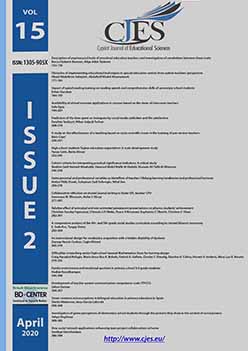Seven common misconceptions in bilingual education in primary education in Spain
Seven common misconceptions in bilingual education in primary education in Spain
Author(s): Slavka Madarova, Jesús García LabordaSubject(s): Language and Literature Studies, Education
Published by: Birlesik Dunya Yenilik Arastirma ve Yayincilik Merkezi
Keywords: bilingual education; misconceptions; CLIL; immersion; cognitive; socio-economic;
Summary/Abstract: Foreign language bilingual education has been common in many countries all over the world for many years after the Quebec issue in the 1970s. However, after all these years, bilingual education still remains as a criticized way of education. This research essay examined the most significant criticism by summarizing it into seven common misconceptions of the bilingual education schooling system in Spain in general education English-Spanish 1st—12th grade. A lot of criticism has been directed towards the differences between regular mainstream classes and bilingual classes especially in Primary education. This paper looks at seven commonly addressed issues. The paper especially focuses on Primary education but most revision matters also relate to secondary and even higher education. Special interest is paid to cognitive, social, economic, mode of bilingual education, role of the immigrant students and parents’ attitudes. The conclusion leads to the understanding that English-Spanish bilingual education is not pernicious but, on the contrary, benefits the cognitive a linguistic development of most school children.
Journal: Kıbrıslı Eğitim Bilimleri Dergisi
- Issue Year: 15/2020
- Issue No: 2
- Page Range: 358-368
- Page Count: 11
- Language: English

